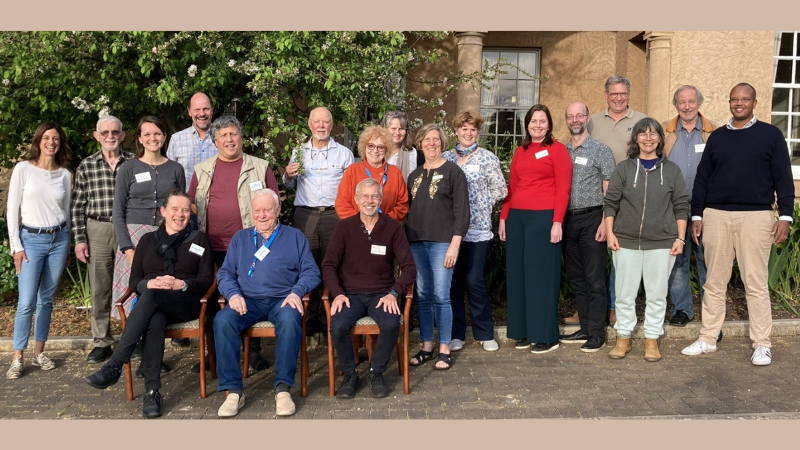National conference of German-language congregations
Twenty representatives from evangelical German-language congregations across Australia gathered for five days in mid-October at The Monastery in Urrbrae, South Australia, for a first-ever national conference of sharing, networking and theological studies.
Under the guiding and affirming quote from Psalm 121:3 — “He will not let your foot be moved; he who keeps you will not slumber” (NRSVA) — participants arrived from congregations in Perth, Adelaide, Melbourne, Sydney and, as the newest fellowship, from the small coastal town Port Macquarie. Sponsored by the Evangelical Church in Germany (EKD), the conference gathered lay preachers, church council members, lay workers, pastors, and academics.
Some of us knew each other well through online communication since the onset of the COVID-19 pandemic. But for most of us this was the first opportunity to meet in person, discuss more systematically subjects of significance, and share personal experiences and concerns in our commitment for our parishioners.
A welcome plus was the participation of the new pastor for the German Lutheran Trinity Church in East Melbourne, the Rev. Kim Kiessling, a female Lutheran pastor from Bavaria having arrived in Australia in early September, and the presence of the EKD coordinator for German-speaking congregations in the Asia-Pacific region, Rev. Ute Hedrich. Pastor Mark Worthing, from the LCA NSW District, presented a number of key inputs, most importantly regarding the changes of congregational life in response to the COVID-19 restrictions.
In fact, the puzzling question of membership in our congregations became a central focus of our reflections. Across Australia most of our church members are migrants from post-war Europe, now ageing. The Trinity congregation in Melbourne responded to this observation about 20 years ago by a deliberate program to address the younger migrant community from the early 2000s: They committed to engage a youth lay worker (Gemeindepädagogin) as a central point of contact for families from babies to teenagers, parents and grand-parents; subsequently, hundreds of Germans-speakers join their St Martin’s Day celebration in East Melbourne. The congregation in Perth gathers a significant number of German speaking migrants from Southern Africa. In Adelaide and the Barossa Valley, a generational void separates the older post-war migrant community from the younger families. Many of the younger German migrants across Australia now hold dual citizenship and thus form a new type of ‘expats’, i.e. living and working in Australia while maintaining an active contact with family and business commitments ‘at home’.
Dr Tania Nelson, the LCA Executive for Local Mission, and Craig Heidenreich for the LCA’s Cross-cultural Ministry shared with us their experience working with Lutheran migrants in Australia from countries as diverse as Sudan, China, Thailand, Finland and other parts of the globe. Dr Nelson also referred to the Memoranda of Understanding between the LCA and EKD from 1972, reaffirmed in 2001, for the mutual recognition and support of German language ministry in Australia.
A later discussion amongst the conference participants affirmed that we see ourselves in continuation with these agreements, despite historical and ecclesiological differences in present-day practices of church life. More importantly, sharing on a local level with congregations from other churches, including the LCA, is a well-practiced principle, for instance in Sydney and other locations.
We very much appreciated the various contributions to this conference from our sisters and brothers in the LCA as the local church with whom we collaborate in many forms. We were grateful to St Michael’s Lutheran Church in Hahndorf SA for providing the venue for a splendid self-cooked dinner and space for such sharing.
Hopefully, this conference will be followed by a sequel in 2023 or 2024. The world may have changed by then, but the biblical quote of Psalm 121:3 became an important affirmation for us in our commitment for German speaking people in Australia.
Photo: Conference participants. Image supplied.
READ MORE STORIES ABOUT German language congregations

